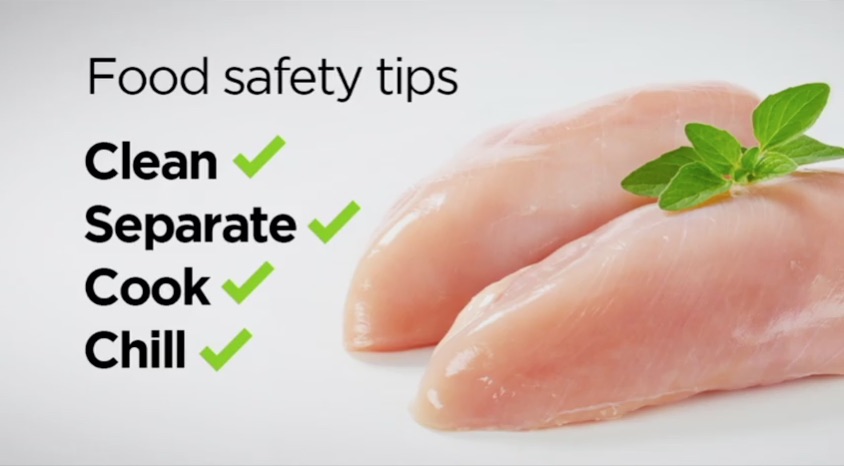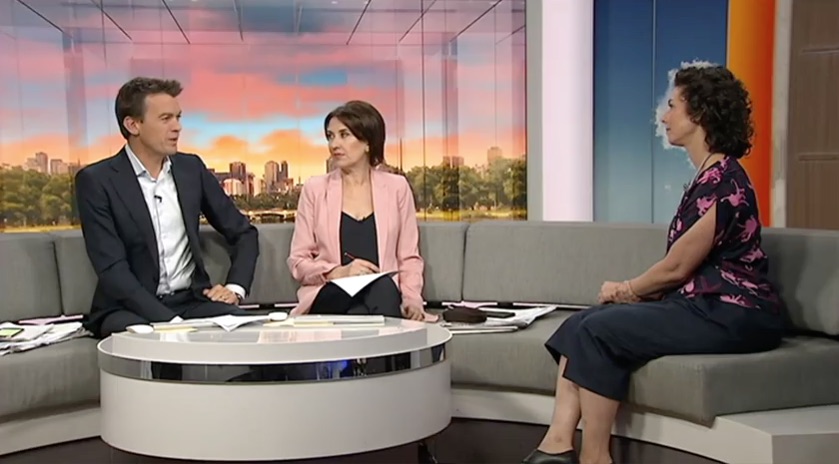Every few weeks I drop in to ABC News Breakfast to chat about what’s happening in the food world. This time it was to chat about food safety over summer, or how to stop getting sick when great aunt Zelda keeps double-dipping the hummus.
My summer food safety tips
It’s all basic stuff but it’s important. It’s also easy to forget when you’re feeling festive and when there are lots of people involved with cooking and serving food. Does it really matter? Well, yes! One in six Australians succumbs to food poisoning every year, with the risks increasing in warm weather. Hygiene is partly a numbers game: one bacterium can multiply to more than two million in seven hours. Keep that in mind when you’re eating a chicken wing that’s been lying around in the sun for a few hours.
Danger foods: meat, cooked rice, salads, dishes with raw egg such as mayonnaise or tiramisu.
Keep these four words in mind: CLEAN – SEPARATE – COOK – CHILL

Clean
- Wash and dry hands well! Include hand sanitiser in your picnic kit and encourage everyone to use it.
- Wash reusable cooler bags and shopping bags – they can fester. Dry them in the sun.
- Keep chopping boards clean and use different boards for different foods.
Separate
- Pack raw meat in sealed containers at the bottom of fridges and coolers.
- If going on a picnic, do as much cutting and prep as possible before leaving home.
- Supply plenty of serving utensils to reduce danger of cross-contamination.
- Use different serving tongs to serve cooked meats than the ones you used to handle raw meat, eg. when barbecuing.
Cook
- Cook meat through, especially sausages, mince and chicken (rare steak is fine, so long as it’s been stored well).
- Beware raw eggs: some food authorities say not to make aioli or mayonnaise but to buy it. I won’t go that far, but make sure that they are refrigerated as much as possible and that dishes using these ingredients are served in small portions and replenished from the fridge.

Chill
- The danger zone is between 5 and 60 degrees so make sure meat is properly cooked. Don’t come the raw prawn or eat the undercooked sausage.
- At home or on the road, put out small portions of dips, sauces and salads and replenish from cooler bags, rather than putting everything out at once.
- Use more icepacks than you think you need. Put food back in the cooler bag/esky as soon as you can.
- Transport food cold, whether it’s raw or cooked. It’s safest to transport meat cold and raw, but if it’s already cooked, ensure that it’s properly chilled before leaving home.
- Chill food quickly – dunk containers in cold water in the sink or an ice bath then get them into the fridge as soon as steam stops rising.
- Place a wet cloth over cooler bags when you’re out and about – this will help food stay cold longer.
And
- Apply the four-hour rule: with meat and seafood, rice and pasta, chuck it out if left unrefrigerated for four hours.

Leave A Comment